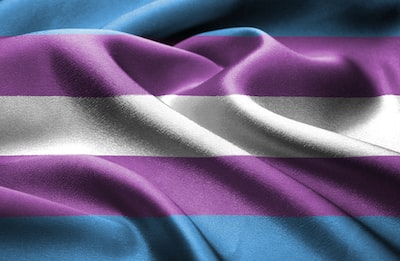
Understanding transgender women is crucial in creating a more inclusive and supportive society. It involves recognizing the unique challenges they face and understanding their journey towards self-acceptance. In this post, we delve deep into what it means to be a transgender woman, the terminology associated with their identity, and the experiences that shape their lives. We also address the reality of discrimination and violence faced by transgender people, including transgender women, and how it intersects with sexuality. Furthermore, we explore the representation of transgender women in media and highlight the progress made so far, along with areas that require improvement.
Finally, we provide actionable steps that society can take to promote acceptance and equality for transgender women. Join us as we strive towards creating a world where every individual feels seen, heard, and valued for who they are.
Defining Transgender Women: Terminology and Identity
Understanding the various gender identities within the LGBTQ+ community is essential, including transgender women. Transgender women are individuals assigned male at birth who identify and live as women. Their journey of self-discovery and acceptance is different things for each individual, often involving personal growth and overcoming societal challenges in the past year. It is important to respect and use their preferred pronouns, which may differ from their assigned sex at birth.
Transgender women may choose to undergo hormone therapy or medical procedures to align their physical appearance with their gender identity. These steps, taken under medical supervision, help them feel more comfortable in their own bodies and live authentically. It is crucial to embrace the diversity within the transgender community, which includes non-binary people and genderqueer individuals who do not strictly identify as male or female.
Transgender women and men face various obstacles in their lives, including discrimination and violence. Society must recognize their rights and take action to provide better support. By educating ourselves about the experiences and challenges faced by transgender women and men, we can work towards creating a more inclusive and accepting world. It is important to note that access to legal documents, such as a birth certificate, can be a significant challenge for transgender individuals, including transgender men, and can impact their ability to access healthcare, employment, and other essential services.
The Journey of Transgender Women: Recognizing and Accepting One’s Identity
The personal journey that trans women embark on involves the process of discovering and embracing their true selves, including the process of coming out as transsexual. This journey is often filled with various challenges, including gender dysphoria and societal expectations. However, with the support of their networks and available resources, trans women find the strength to overcome these obstacles and live authentically.
It is crucial to recognize and celebrate the courage and resilience that trans women demonstrate when they come out and embrace their true identities. Gender identity is not determined by biological sex or sexual orientation, and it is important to understand and respect this fact. The journey of recognizing and accepting one’s femininity and identity is unique to each individual, and it is essential to provide a supportive and inclusive environment for transgender women to thrive without facing any form of sexism.
In recent years, there has been increased awareness and visibility of transgender individuals, thanks to the efforts of the LGBTQ+ community and allies. However, it is still necessary to challenge stereotypes and misconceptions surrounding transgender women in real life. By educating ourselves and others, we can work towards creating a society that fully accepts and embraces gender diversity.
Challenges Faced by Transgender Women: The Reality of Discrimination and Violence
The challenges faced by transgender women are far-reaching and complex. Discrimination and violence against them continue to be prevalent issues in society. Transgender women, especially those of color, face unique hurdles that compound the existing struggles they already encounter. Advocating for transgender rights and fighting against transphobia are crucial in addressing these challenges. Supporting policies that protect transgender women from discrimination in essential areas such as healthcare, employment, and housing is essential. The Williams Institute, a leading research center on sexual orientation and gender identity law and public policy, provides valuable insights and data on the experiences of transgender individuals.
Education and awareness play a vital role in combating stereotypes and misconceptions surrounding transgender women and the broader LGBT community. By promoting understanding and empathy, we can create a more inclusive society that values and respects their identities. It is important to recognize that everyone’s gender journey is unique, and transgender women should be given the space to express their true selves without fear of discrimination or violence.
In recent years, there has been progress in recognizing and supporting transgender rights, but much work still needs to be done. The journey towards equality requires collective action and solidarity. By standing together, we can create a safer and more accepting world for transgender women named Alex.
The Intersectionality of Transgender Women and Sexuality
Recognizing the diverse sexual orientations of transgender women, including lesbian and bisexual, in the United States is crucial in understanding their experiences. It is important to challenge the notion that gender identity and sexual orientation are inherently linked, as individuals can identify across the spectrum. Embracing the intersectionality of transgender women’s identities as an umbrella term allows for a more inclusive understanding and recognition of their unique experiences. Supporting the rights and visibility of transgender women within the LGBTQ+ community is vital for their empowerment and well-being. Promoting inclusivity and understanding of all forms of gender expression and sexual orientation contributes to a more accepting and equal society. By embracing the complexities of transgender women’s identities and experiences, we can foster a culture that values and respects their authentic selves without judgment or discrimination.
Representation of Transgender Women in Media: Progress and Pitfalls
Examining the portrayal of transgender women and intersex individuals in mainstream media last year, it is evident that there have been both progress and pitfalls. Positive representation that challenges stereotypes and promotes acceptance should be celebrated. It is crucial for transgender women and intersex individuals to tell their own stories and be involved in media representation to ensure authenticity and accurate portrayals. The harmful effects of misrepresentation and sensationalization of transgender women and intersex individuals must also be addressed. Such portrayals can perpetuate stereotypes, stigmatize the community, and contribute to discrimination.
Advocating for increased visibility and diverse representation of trans people, including transgender women, in all forms of media is essential. This includes representation across different platforms, genres, and demographics. By having more trans people represented in media, it helps to break down barriers and educate the public about their experiences and challenges. It also provides role models for other transgender individuals who may be struggling with their own gender identity, promoting alignment with their true selves.
In recent years, there have been some positive changes in media representation. Transgender characters are being portrayed in a more complex and nuanced way, reflecting the reality of their lives. However, there is still a long way to go in terms of achieving full and accurate representation. It is important for media creators and gatekeepers to understand the medical steps they can take to support transgender individuals, including hormone replacement therapy for testosterone, and the power they hold in shaping public perception, and to use that power responsibly.
How can society better support transgender women?
Creating a society that better supports transgender women involves fostering safe spaces, educating the public, providing accessible healthcare and mental health support, creating protective policies and legislation, and promoting workplace inclusivity. These steps are crucial for building a more accepting and equal society for transgender women.
Action Steps to Promote Acceptance and Equality for Transgender Women
Taking action to promote acceptance and equality for transgender women is crucial in creating a more inclusive and equitable society. One important step is to support organizations that advocate for transgender rights and empowerment. These organizations work tirelessly to fight discrimination, provide resources, and create safe spaces for transgender individuals.
Using inclusive language is another actionable step. Respecting transgender women’s chosen names and pronouns shows validation and respect for their identity. It also contributes to creating a more inclusive environment where transgender individuals feel seen and acknowledged.
Amplifying the voices and experiences of transgender women is essential in promoting acceptance and understanding. Through social media and other platforms, we can share stories, insights, and perspectives that challenge stereotypes and misconceptions about transgender women.
Education plays a crucial role in promoting acceptance. Taking the time to educate oneself on transgender issues and challenging misconceptions can help break down barriers and foster empathy and understanding.
Engaging in conversations and activism that promote acceptance, equality, and justice for transgender women is a powerful way to create change. By advocating for their rights, raising awareness, and supporting initiatives that strive for equality, we can contribute to a more inclusive and accepting society.
By taking these action steps, we can make a real difference in promoting acceptance and equality for transgender women. Let’s strive to create a world where everyone feels valued, respected, and empowered, regardless of their gender identity.
Conclusion
In conclusion, understanding transgender women requires empathy, education, and acceptance. It is crucial to recognize and respect their gender identity and provide a safe and inclusive environment for them to thrive. Transgender women face numerous challenges, including discrimination, violence, and limited representation in media. To create a more inclusive society, we must actively support transgender women by advocating for their rights, challenging harmful stereotypes, and promoting equality. By taking action and embracing diversity, we can contribute to a more accepting and equal future for all transgender individuals. Let us strive for a society where transgender women are celebrated and empowered, and their voices are heard and valued.
